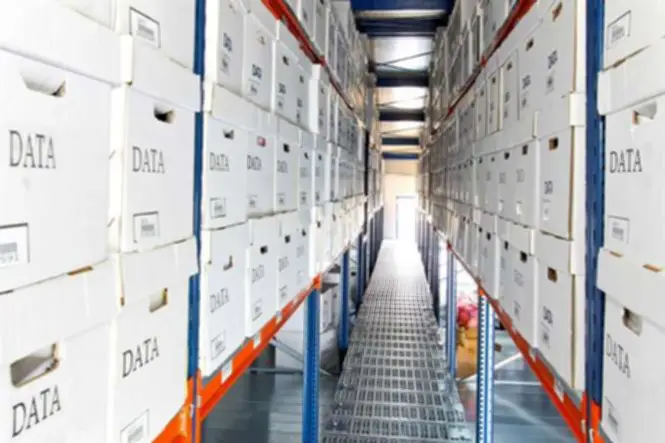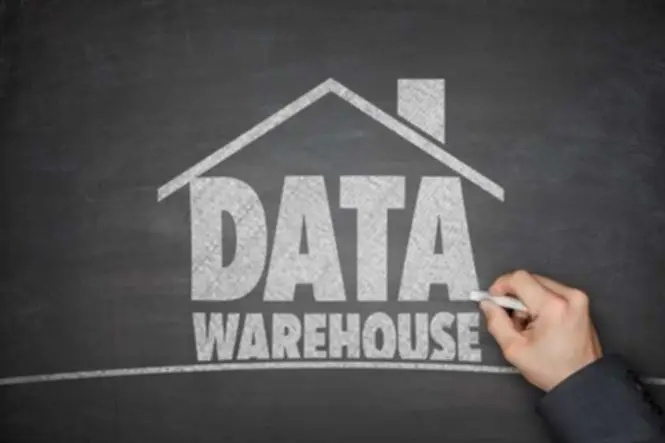Data Lake vs Data Warehouse: What’s the Difference?

Institutions obviously have to possess comprehensive information on all aspects regarding their work. They have various types of approaches to gathering and structuring their data. There are two main types:
- Data lakes
- Data warehouses.
The chief difference is that one lacks any sort of defined structure, and the other has been purposefully built to store data of various types, sort it, and only admit the information that fits. When creating a digital storage space, you’d have these two major types. It’s more of a spectrum, though.
Storing information 101
Hoarding one’s data is critical in the modern world. It’s not just a matter of safeguarding your personal details. Establishments all over use various techniques of sorting & systemizing various pieces of information, two of which are the Lake and the Warehouse. Let’s see what establishments need them for.
Information storage in general is a vast topic. These two systems of organization can refer to just about anything from a system used to build a specific app to your own approach to hoarding information. It’s just a matter of taking information and storing it. Deciding which is more efficient for a particular case is a problem here.
So, what’s the difference between a data warehouse and a data lake?


We are confident that we have what it takes to help you get your platform from the idea throughout design and development phases, all the way to successful deployment in a production environment!
What are Lake & Warehouse?
When you want to keep various pieces of information in one place, you can do it one of two ways nowadays.
Lakes are undefined blobs where you basically dump all of your info and let it get mixed up there. Accessing any particular piece in these heaps is difficult, and there’s usually next to no system to what you can find inside. This approach is very chaotic, and it usually requires a good deal of skilled professionals to keep it viable.
Warehouses are organized systems where information arrives after being processed and verified. There are many types of info here, but they are all fit under one of many categories, all of which can be easily accessed through a catalog or something similar. Visualize a warehouse with countless labeled shelves, but digital.
What are Lakes and Warehouses?
Although they have a lot in common, the data lake vs data warehouse comparison can reveal many differences. Many of them affect one of these aspects:
- Ease of accessing
- Defined structure
- Maintenance requirements.
The Lake
As for the Lake, it is not suitable for regular users, employees, or other people who don’t know how to operate big chunks of undefined information in wild. You can’t just open Lake-type storage space and expect to find everything you need in a moment. No, these are heaps of raw information, and there’s a lot of it.
They are usually operated from day 1 or somewhere near it by the data scientists – technical operators who work with various forms of digital information all the time, unravel streaks of info, access the necessary pieces, gather them together, and send where they are needed.
It’s a tiring job, and data scientists aren’t always certified specialists. These can be computer-savvy people or even algorithms. Machines in particular are used extensively with these. They go through the files, find something similar to the type of info they were asked about and then pass it to whoever requested it.
They aren’t 100% accurate at all (at least not in the beginning). However, huge masses of raw information are good for learning. The machines gradually get better at recognizing various files and streaks of data after each use. Whatever purpose they may have later, Lakes make sure they become good at it.
They are better at finding specific info faster and eventually somewhat accurate. These are important qualities if you go through the undefined blobs of data which are known as Lakes. There can be almost to completely no system in them, especially compared to the Warehouses.
The Warehouse
As for the Warehouse, these are specifically created to be readily accessible, structurally defined, and robust. To put something inside, you will have to follow the rules and principles of storing info in such systems. That’s what makes Warehouses easier to manage.
You don’t really need any particularly professional people to operate Warehouse systems. You still need to be knowledgeable enough to operate this system at its fullest. These are, after all, sophisticated folders of information organized into neat catalogs. Nonetheless, it is much easier to find a particular file or line of data.
They also need to be built first, and some of them are created via processing the Data Lakes into Warehouses. During this process, much of the information is lost because not everything in the raw heap of data is worth saving. The quality is often poor.
For instance, some files may contain nothing at all and still occupy space, while others can be duplicates of the files that already exist within the system. In a Warehouse, most pieces of information are processed to avoid such flaws. For this reason, the Warehouses are often much lighter than the Lakes.
The similarities
These systems are still somewhat alike, despite the data lake vs data warehouse differences. It’s a matter of how you access your data, which is why there are many similar points. In many cases, it’s a spectrum of characteristics. You don’t just pick one of two techniques and adhere to its requirements.
For instance, you can make a slightly structured Lake by dividing sizeable bunches of information into just several broad categories without any further distinguishing. Additionally, you can process info just enough to avoid dealing with rubbish data. Everyone is welcome to approach their data organization in a way they see fit.
There are certainly merits to each system, but it’s important to remember that there is no such thing as a perfect Lake or a perfect Warehouse. So it’s really a question of what aspects of each you want to be incorporated into your mechanism.
Merits of Lakes
The advantages of organizing your information into a Lake generally amount to flexibility.
You can really do whatever you desire or need with a system of this sort. Dumping all your information in one undefined, versatile ball of data still means you can extract whatever you need eventually. However, it also means that you can put whatever you want inside. There are few restrictions.
Although it’s common to perceive these as temporary stages, many Lakes also end up final products, especially if the owner institution doesn’t need to store a lot of broadly varying information. That’s also why this approach works at its finest if you only mean to store your own data in one of these, and nothing else.
If an institution, however, gets to use such type of information storage system, they will have to store more than any individual would, there’s no going around it. At the same time, companies, establishments, and organizations can delegate more resources and people to maintain these systems. That makes it significantly easier to manage all the while retaining the Lake’s positive qualities.
Cataloged information, especially in small quantities, simply becomes congested. It’s advisable to use Lakes with smaller data collections or if you really require flexibility in your day-to-day operations.
Obviously, more often than not Lakes are bloated, cumbersome spaces that can’t easily be called flexible. In these cases, it’s probably much better to eventually process the entire thing and turn it into a Warehouse.
Merits of Warehouses
The advantages of having a Warehouse around are much more evident, but also less pronounced. These are as follows:
- Order and consistency
- Better quality of information
- Easier useю
These apply to the data collections commonly possessed by the organizations, i.e. big, variable compilations taken from various sources, including paper files, digital files and other data repositories, including some Lakes. Data is crucial for all sorts of operations, which is why a normal way of sorting it is very valuable.
Warehouses offer just that – a chance to properly store data based on various characteristics, such as size, format, purpose, and much more. A lot actually depends on what you feel is crucial for distinguishing files and other piles of information.
There’s a lot of flexibility to Warehouses, but in a different sense. Lakes can be anything and store anything by nature. In Warehouses, there are rules that need to be taken into account. Operating it the wrong way dooms the entire repository system. That’s the main take on the data lake vs data warehouse analysis.
Top Articles
Embracing Automotive Digital Transformation to Accelerate Innovation
I am here to help you!
Explore the possibility to hire a dedicated R&D team that helps your company to scale product development.






